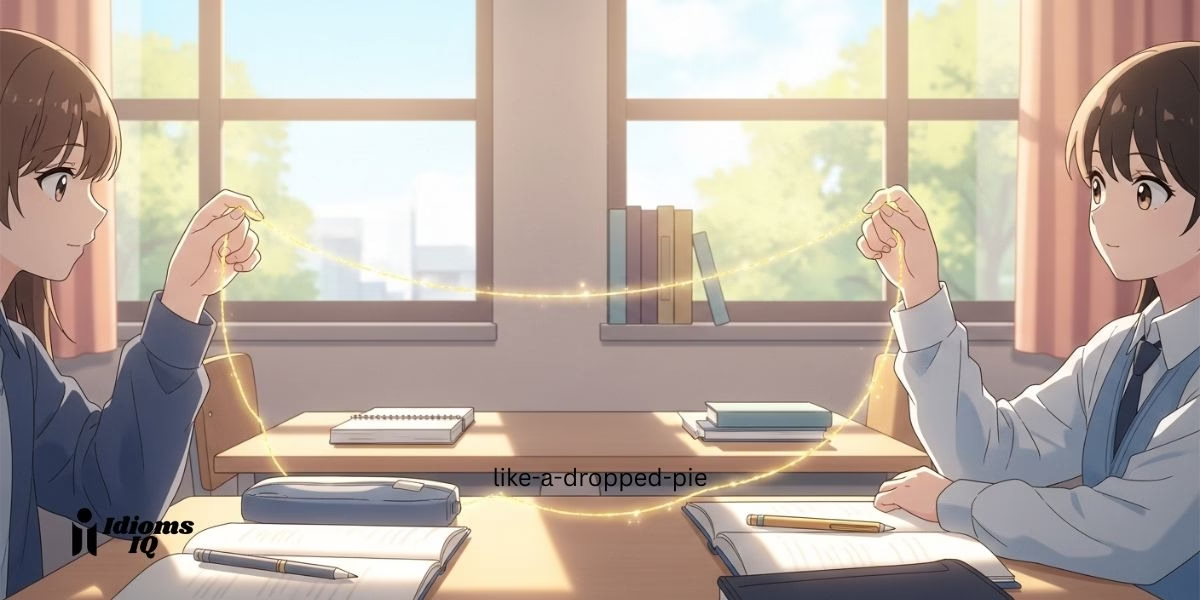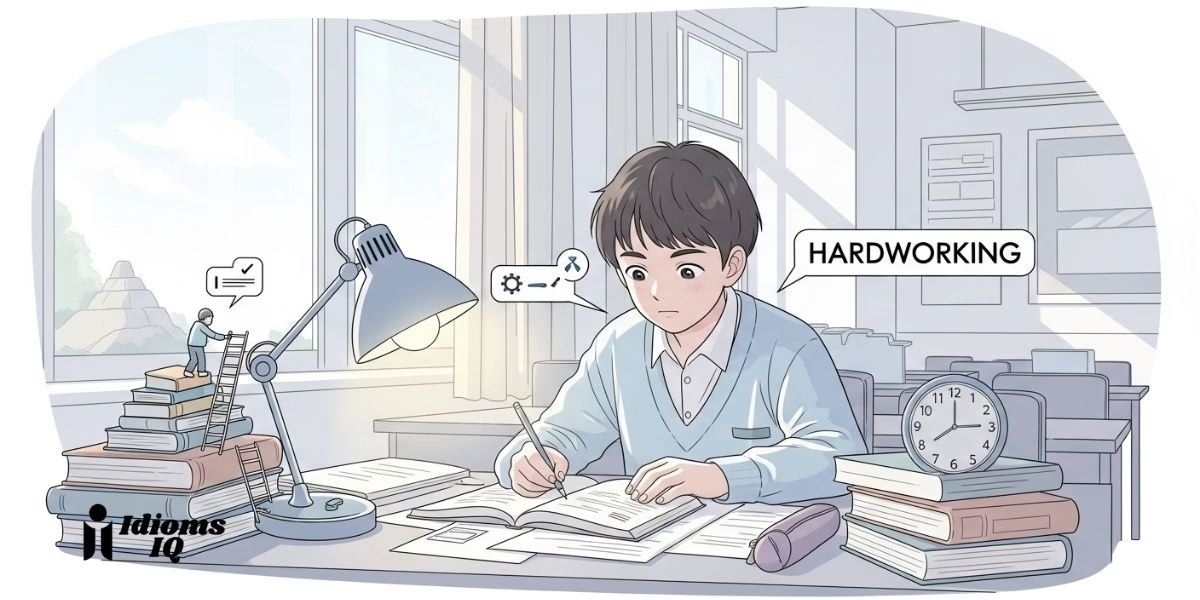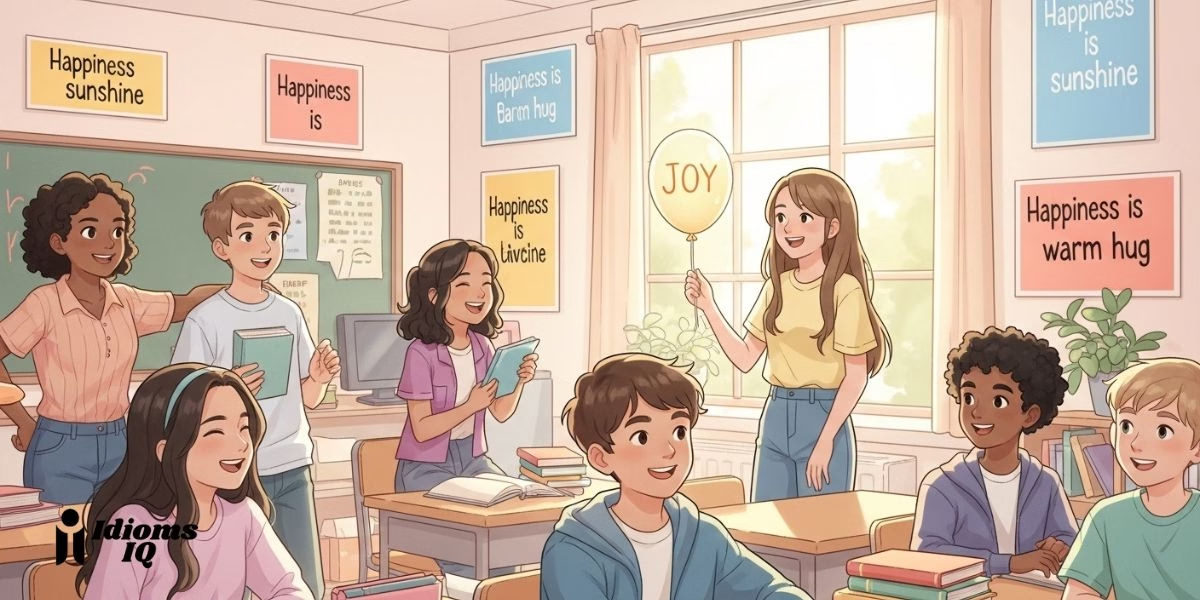
Trust It’s the invisible thread that weaves our relationships together, the silent foundation upon which we build our lives. But how do we talk about something so vital yet so intangible? We turn to the power of metaphor. A metaphor is a figure of speech that helps us understand an abstract concept by describing it as a concrete thing. It’s the art of seeing trust not just as a feeling, but as a bridge, a fortress, or a delicate piece of glass.
In art, literature, and our daily lives, metaphors are the language we use to explore the landscape of the human heart. They allow us to give weight and form to our most important emotions. This article delves into 40 insightful metaphors for trust, complete with their meanings and examples, to help you better understand, articulate, and appreciate this cornerstone of human connection.
Related: Metaphors for Sleep
Why We Use Metaphors for Trust
You can’t see or touch trust, yet its presence or absence changes everything. Metaphors are essential because they make this invisible force tangible. They allow us to communicate the specific nature of a bond is the trust in a relationship a “sturdy bridge” that can bear any weight, or is it “thin ice,” ready to crack under pressure? For artists and writers, these metaphors are crucial for showing the state of a relationship, building dramatic tension around betrayal, and making the abstract dynamics between characters visible and emotionally impactful for the audience.
Metaphors for Trust
Here is a collection of metaphors that explore the different ways we build, break, and value trust.
Strength and Foundation
1. Trust is a Foundation
- Meaning: Trust is the essential base upon which a strong and stable relationship is built.
- Usage Example: “Their long marriage was built on a foundation of deep and unwavering trust.”
- This is a fundamental metaphor that frames trust as the core support for any lasting connection.
2. Trust is a Bridge
- Meaning: Trust is a connection that spans the distance between two people, allowing for communication and mutual understanding.
- Usage Example: “After the argument, apologizing was the first step in rebuilding the bridge of trust between them.”
- This metaphor emphasizes trust’s role as a connector over a gap of uncertainty.
3. Trust is an Anchor
- Meaning: Trust provides stability, security, and a sense of being grounded, especially during difficult times.
- Usage Example: “In the chaos of her new job, her manager’s trust was an anchor that kept her steady.”
- This metaphor highlights the stabilizing and calming effect of having trust in someone.
4. Trust is a Safety Net
- Meaning: Trust is the belief that someone will catch you if you fall, allowing you to take risks.
- Usage Example: “The team’s trust in each other was a safety net, empowering them to try bold new ideas.”
- This metaphor is often used in contexts of vulnerability and risk-taking.
5. Trust is a Rock
- Meaning: Trust is something solid, reliable, and unchanging.
- Usage Example: “Through all of life’s ups and downs, their friendship was his rock of trust.”
- This metaphor emphasizes the dependability and enduring strength of a trusting bond.
6. Trust is the Glue
- Meaning: Trust is the invisible substance that holds a relationship, team, or family together.
- Usage Example: “Honesty and communication are important, but trust is the glue that makes a team stick.”
- This common metaphor highlights trust’s essential role in maintaining cohesion.
7. Trust is a Backbone
- Meaning: Trust provides the core strength and structural integrity for a relationship or organization.
- Usage Example: “Without the trust of his employees, the leader had no backbone to support his vision.”
- This metaphor frames trust as the central pillar of strength and support.
Fragility and Danger
8. Trust is Glass
- Meaning: Trust is beautiful and clear, but once shattered, it is almost impossible to put back together perfectly.
- Usage Example: “He warned his son that trust is glass; be careful not to break it, because the cracks will always show.”
- This is a powerful and common metaphor for the fragility of trust.
9. Trust is Thin Ice
- Meaning: A precarious and dangerous situation where trust is weak and could break at any moment.
- Usage Example: “After he lied about his whereabouts, he knew he was walking on the thin ice of her trust.”
- This metaphor vividly captures the feeling of imminent danger in a fragile relationship.
10. Trust is a Delicate Thread

- Meaning: Trust can be a fine, easily broken connection between people.
- Usage Example: “The trust between the two warring nations was a delicate thread, easily snapped by any provocation.”
- This metaphor is used to describe trust that is weak, tenuous, and requires great care.
11. Trust is a House of Cards
- Meaning: A structure of trust that appears stable but is built on such a weak foundation that one small mistake will cause a total collapse.
- Usage Example: “His entire web of lies was a house of cards, and one phone call brought it all down.”
- This metaphor emphasizes the inherent instability of trust that is not built on truth.
12. Trust is a Mirror
- Meaning: Trust reflects how people see each other, but if it’s broken (cracked), the reflection is distorted forever.
- Usage Example: “Once broken, trust is a mirror that can never give back the same perfect reflection.”
- Like glass, this metaphor highlights the permanent damage caused by betrayal.
13. Trust is a Soap Bubble
- Meaning: Trust can be beautiful and magical, but it is also extremely fragile and temporary, popping with the slightest touch.
- Usage Example: “Their whirlwind romance was a soap bubble of trust, beautiful but destined to burst.”
- This metaphor is used for trust that is beautiful but lacks substance and is short-lived.
Process and Growth
14. Trust is a Seed
- Meaning: Trust starts small and must be carefully nurtured with consistent actions over time to grow into something strong.
- Usage Example: “Every promise kept was another drop of water on the seed of their trust.”
- This metaphor emphasizes that trust requires time, care, and nurturing to develop.
15. Trust is a Two-Way Street
- Meaning: Trust must flow in both directions between people to be successful; it requires reciprocity.
- Usage Example: “She couldn’t be the only one making an effort; trust is a two-way street.”
- This is a very common metaphor that highlights the need for mutual effort in a relationship.
16. Trust is a Currency
- Meaning: Trust is a valuable resource that is earned through actions, can be spent or invested, and can be lost.
- Usage Example: “He had built up a lot of trust currency with his boss, so his one mistake was forgiven.”
- This modern metaphor frames trust in transactional terms, which is common in business contexts.
17. Trust is a Garden
- Meaning: Trust must be actively cultivated, tended to, and protected from “weeds” like doubt and deceit.
- Usage Example: “A healthy relationship is a garden of trust that requires daily attention.”
- This metaphor beautifully illustrates that trust is an ongoing process, not a one-time achievement.
18. Trust is a Leap of Faith
- Meaning: The act of trusting someone, especially for the first time, requires believing without having complete proof.
- Usage Example: “Hiring the young, inexperienced candidate was a leap of faith, but one that paid off.”
- This metaphor emphasizes the element of risk and belief inherent in placing your trust in someone.
19. Trust is a Muscle
- Meaning: Trust grows stronger the more it is used and tested.
- Usage Example: “Every time they relied on each other, their trust was a muscle that got a little bit stronger.”
- This metaphor suggests that overcoming small challenges together builds a more resilient trust.
Value and Rarity
20. Trust is a Rare Jewel

- Meaning: Trust is extremely precious, beautiful, and hard to find.
- Usage Example: “In the world of politics, genuine trust is a rare jewel.”
- This metaphor emphasizes the immense value and rarity of true trust.
21. Trust is a Precious Gift
- Meaning: Trust is something that is given freely by one person to another and should be cherished.
- Usage Example: “Never forget that her trust is a precious gift; do not treat it lightly.”
- This metaphor highlights the voluntary and valuable nature of trust.
22. Trust is a Key
- Meaning: Trust unlocks intimacy, secrets, and deeper levels of a relationship.
- Usage Example: “His vulnerability was the key of trust that finally unlocked her heart.”
- This metaphor frames trust as the necessary tool to gain access to something valuable.
23. Trust is a Guiding Light
- Meaning: Trust is a beacon that helps you navigate uncertainty and believe in a positive outcome.
- Usage Example: “Her trust in her own intuition was a guiding light through a very confusing time.”
- This metaphor connects trust with clarity, guidance, and hope.
Of course. Here are the detailed metaphors for trust, continuing from number 24 to 40.
24. Trust is a Shelter from the Storm
- Meaning: Trust is a place of emotional safety and protection from the chaos and hardships of the outside world.
- Usage Example: “When he was overwhelmed by work, his wife’s unwavering belief in him was his shelter from the storm.”
- This metaphor is often used to describe the comfort and security that a reliable relationship provides during turbulent times.
25. Trust is a Quiet Understanding
- Meaning: A deep, intuitive connection between people that doesn’t require constant words or validation.
- Usage Example: “They had been friends for so long that their bond was a quiet understanding; they knew they could always count on each other.”
- This metaphor describes a mature, comfortable trust that is felt rather than spoken.
26. Trust is a Handshake of the Heart
- Meaning: A deep, mutual, and sincere agreement of reliability and respect between two people.
- Usage Example: “Their business partnership was more than a contract; it was a handshake of the heart, built on shared values.”
- This metaphor elevates a formal gesture to an emotional and spiritual level, signifying a profound bond.
27. Trust is a Silent Promise
- Meaning: An unspoken but deeply felt commitment to be faithful, reliable, and supportive.
- Usage Example: “Every time he showed up for her without being asked, he reinforced the silent promise of their trust.”
- This metaphor highlights the power of consistent actions over words in building and maintaining trust.
28. Trust is a Compass
- Meaning: Trust provides moral and relational direction, helping you know you are on the right path with someone.
- Usage Example: “When faced with a difficult decision, he let his trust in his mentor be his compass.”
- This metaphor frames trust as an essential tool for navigation in life’s complex journey.
29. Trust is an Open Door
- Meaning: Trust creates an environment of welcome, vulnerability, and new opportunities.
- Usage Example: “Her willingness to trust him was an open door, inviting him to share his own feelings without fear.”
- This metaphor is used to describe how trust initiates a cycle of openness and possibility.
30. Trust is a Clear Sky

- Meaning: A state within a relationship that is free from clouds of doubt, suspicion, or worry.
- Usage Example: “After they talked through their misunderstanding, the air between them was a clear sky once more.”
- This visual metaphor equates doubt with bad weather and trust with clarity and peace.
31. Trust is a Root System
- Meaning: The hidden, interconnected, and foundational support that nourishes and stabilizes a relationship.
- Usage Example: “What the public saw was their success, but the real strength of their company was its deep root system of trust.”
- This metaphor emphasizes that the strongest trust is often unseen, growing deep beneath the surface over time.
32. Trust is a Shared Secret
- Meaning: The act of confiding in someone and having that confidence protected is the fundamental basis of a trusting bond.
- Usage Example: “Their friendship began with a shared secret, a small seed from which a great trust grew.”
- This metaphor highlights the intimacy and vulnerability required to initiate trust.
33. Trust is a Blindfold
- Meaning: Sometimes, trust requires you to believe in someone or something without seeing the full picture or having all the evidence.
- Usage Example: “Investing in the new idea felt like wearing a blindfold, a trust in his partner’s vision over the current reality.”
- This metaphor emphasizes the element of faith and the acceptance of uncertainty that is often part of trust.
34. Trust is a Fire
- Meaning: Trust provides warmth, comfort, and light in a relationship, but it needs fuel (like honesty and effort) and can be quickly extinguished by betrayal.
- Usage Example: “They nurtured the fire of their trust with daily communication and small acts of kindness.”
- This metaphor captures the dual nature of trust: it is a wonderful, warming force, but it requires maintenance and is vulnerable.
35. Trust is a Map
- Meaning: A reliable guide created through past experiences that you can use to navigate a relationship or future situations with confidence.
- Usage Example: “His long history of keeping his promises was a map she could trust when they faced new challenges.”
- This metaphor frames trust as a dependable tool for planning and navigating the future based on past reliability.
36. Trust is a Fortress
- Meaning: A strong, defensive structure that is built over time to protect a relationship from external doubt, gossip, or threats.
- Usage Example: “The family’s trust in one another was a fortress that no outside criticism could penetrate.”
- This metaphor emphasizes the protective, defensive quality of a very strong, unified trust.
37. Trust is a Slow-Climbing Vine
- Meaning: Trust grows gradually and patiently, wrapping around and strengthening a bond over time through consistent support.
- Usage Example: “Their trust was a slow-climbing vine; it had taken years to grow, but now it was an inseparable part of their connection.”
- This organic metaphor highlights the slow, patient, and persistent nature of building deep trust.
38. Trust is a Language
- Meaning: It is a form of non-verbal communication that must be learned, practiced, and understood between people.
- Usage Example: “After years together, they were fluent in the language of trust, understanding each other’s intentions without words.”
- This metaphor emphasizes that trust is a skill and a form of deep communication unique to a relationship.
39. Trust is a Still Water
- Meaning: A relationship that is calm, clear, and deep, where one can see to the bottom without fear of hidden turmoil.
- Usage Example: “Unlike his chaotic past relationships, his connection with her was a still water of trust and peace.”
- This metaphor uses the clarity and calmness of still water to represent an honest and peaceful bond.
40. Trust is a Pact

- Meaning: A solemn, often unspoken, agreement between individuals to have each other’s back and protect one another.
- Usage Example: “Their childhood friendship was a silent pact, a trust that they would be there for each other no matter what.”
- This metaphor gives trust the weight of a formal, serious, and binding agreement.
Practice Your New Vocabulary: Fill in the Blanks
- After the lie, their relationship was on ________________, and every step felt dangerous.
- She warned him that trust is like ________________; once shattered, it’s never the same.
- Their partnership was built on a solid ______ of mutual respect.
- Opening up to him about her past was a huge ________________.
- In a successful team, trust is the ________________ that holds everyone together.
- He knew trust was a ________________ and that he would have to earn it back over time.
- Having his family’s support was a ________________ that allowed him to take creative risks.
- Trust must be earned; it is a precious ________________ that should be guarded closely.
- For the relationship to work, they both had to contribute; trust is a ________________.
- His complete faith in her abilities was the ________________ that kept him grounded during the project.
Answers
- thin ice
- glass
- foundation
- leap of faith
- glue
- seed
- safety net
- jewel
- two-way street
- anchor
Conclusion
Trust is the invisible architecture of our most meaningful connections. While the feeling itself is abstract, the metaphors we use give it a tangible reality making it something we can build, break, nurture, and cherish.
By understanding that trust can be a “bridge” to be crossed, a “garden” to be tended, or a piece of “glass” to be protected, we can engage with our relationships more consciously. We encourage you to use this rich vocabulary to better articulate your feelings and to build stronger, more resilient bonds in your own life.






